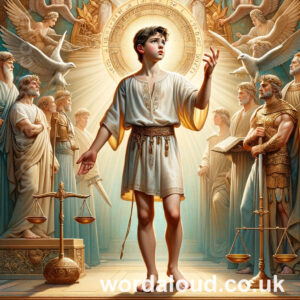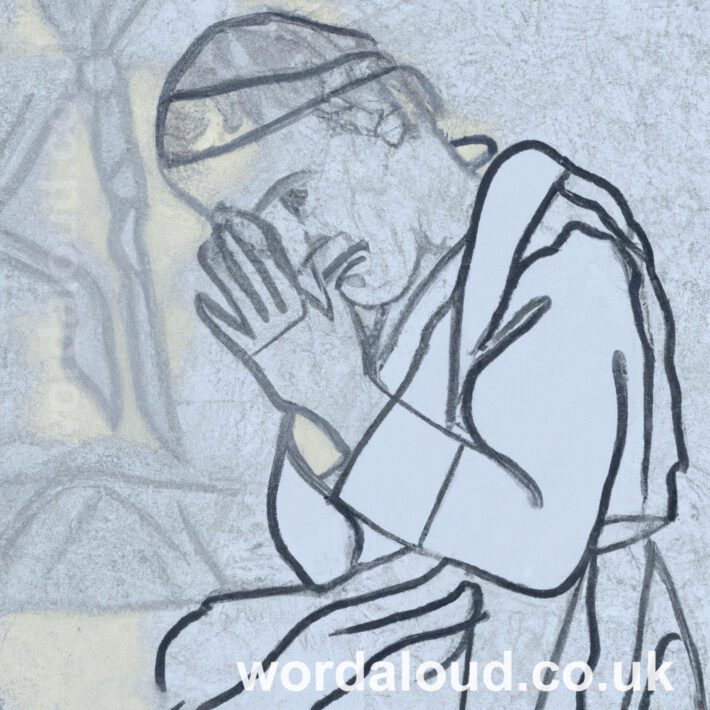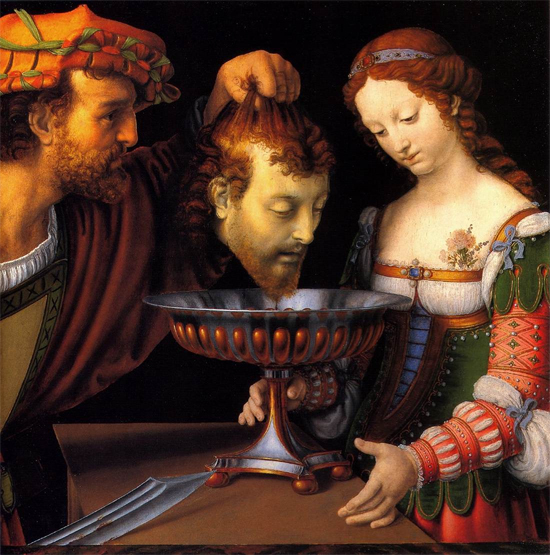Christian Art | Prayer With Jesus | Psalms | A Plea For Justice | King David As A Boy | Audio KJV | Love Revealed By Jesus Christ | King James Audio Bible
Psalm 82 | King James Audio Bible
YouTube : Psalm 82 | KJV | King James Version | Audio Bible | Word Aloud
Psalm 82 cries for justice and righteous governance. The psalm acknowledges God as the ultimate arbiter, who scrutinizes celestial rulers referred to as ‘gods’. This call to divine scrutiny explores governance, morality, and is a call for intervention to establish a more righteous order.
The psalmist opens with an image of God standing in judgment within the assembly of celestial beings. This divine assembly, a divine council, raises questions about fairness of rule. Celestial rulers, addressed as ‘gods’, are subject to divine investigation, accountability and moral evaluation.
The psalm includes a passionate plea for these celestial rulers to take up the cause of justice. The plea is not just a call for fairness but an invocation for the defence of the weak and vulnerable. The psalm goes beyond a theoretical concept of justice, urging a tangible and compassionate response to the cries of those oppressed. The psalmist paints a vivid picture of a world in need of divine intervention, where justice has been compromised, and the vulnerable are in desperate need of a defender.
There is acknowledgment of the imperfections of these celestial rulers. Despite their exalted status as ‘gods’ and ‘children of the Most High’, the psalmist states their mortality. Regardless of divine elevation, they share in the human condition and are subject to the inevitability of mortality. This bridges the celestial with the earthly, emphasizing interconnectedness of all beings in the grand narrative of existence.
The psalm concludes with a heartfelt appeal to God, the ultimate Judge, invoking a future divine rule characterized by righteousness. This plea extends beyond the immediate context of celestial governance, reaching towards a universal hope for a time when divine governance aligns harmoniously with virtuous principles. The psalmist, in envisioning this future, speaks to a timeless aspiration for justice, righteousness and divine intervention.

Psalm 82 | King James Audio Bible KJV | Love Revealed By Jesus Christ
God standeth in the congregation of the mighty; he judgeth among the gods.
How long will ye judge unjustly, and accept the persons of the wicked? Selah.
Defend the poor and fatherless: do justice to the afflicted and needy.
Deliver the poor and needy: rid them out of the hand of the wicked.
They know not, neither will they understand; they walk on in darkness: all the foundations of the earth are out of course.
I have said, Ye are gods; and all of you are children of the most High.
But ye shall die like men, and fall like one of the princes.
Arise, O God, judge the earth: for thou shalt inherit all nations.
Key Themes Of The Psalm For Reflection | Love Revealed By Jesus Christ
Divine Scrutiny: The psalm vividly portrays God scrutinizing celestial rulers, questioning the fairness of their governance.
Call For Justice: A passionate plea urges these celestial rulers to champion the defence of the weak, emphasizing the necessity for divine intervention to restore justice on earth.
Imperfections Of Celestial Rulers: The psalm reflects on the mortality of celestial rulers despite their exalted status as ‘gods’ and ‘children of the Most High’.
Anticipation Of Divine Judgment: The psalm concludes with an earnest appeal to God, the ultimate Judge, anticipating a future divine rule characterized by righteousness.








